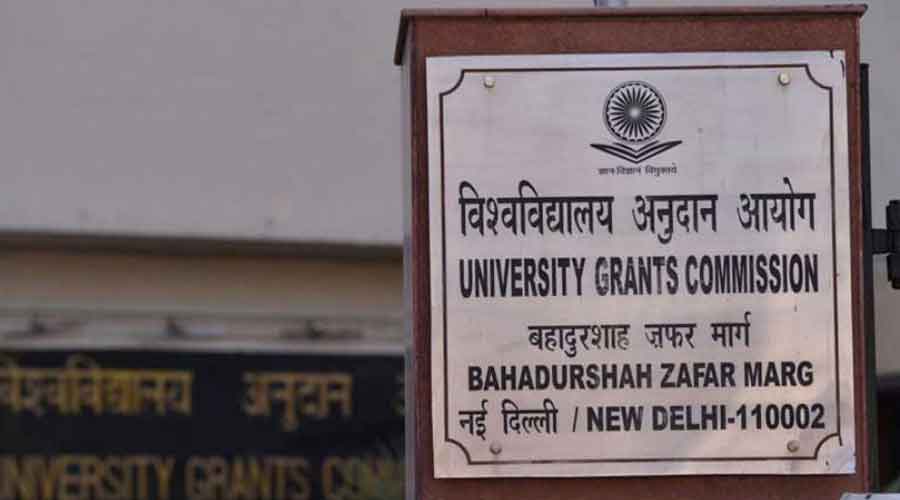A government-appointed panel has recommended replacing the Non-NET (National Eligibility Test) fellowship offered to research students at central universities with an NET-linked fellowship, dismaying academics who say this would hurt students from disadvantaged groups.
Currently, PhD and MPhil students at central universities are eligible for the Junior Research Fellowship (JRF), Non-NET fellowship and a few other minor scholarships.
Some 8,000 are given the JRF (Rs 31,000 a month for two years and Rs 35,000 a month for the next three years) on the basis of their NET ranks. The rest are eligible for the Non-NET fellowship, given to about 30,000 research scholars (Rs 8,000 a month for PhD students and Rs 5,000 a month for the soon-to-be-history MPhil students).
Now a panel has suggested replacing the Non-NET fellowship with a “NET-II fellowship”, thus tying all research scholarships at the central universities with securing pass marks in the NET, sources in the education ministry and the University Grants Commission (UGC) confirmed independently.
Academics said that if the recommendation is accepted, it will hurt poor and rural students who cannot afford or access coaching, which increases one’s chances of cracking the multiple-choice-based NET.
In contrast, research scholars take subjective-type entrance tests to gain admission to central universities, thus qualifying automatically for the Non-NET fellowship. The entrance tests are conducted individually by some of the universities and as a group by the rest.
The UGC had first decided to scrap the Non-NET fellowship in October 2015, citing a lack of funds.
However, faced with student protests, the education (then HRD) ministry put the decision on hold and set up an expert committee under a professor, Gautam Barua, to suggest better selection guidelines. The committee was also asked to suggest whether such scholarships could be extended to state universities.
However, a ministry official said the government was keen on reducing the expenditure on scholarships and therefore unofficially asked the Barua panel — which had been set a deadline of three months — to take its time.
The panel took more than five years and handed in its report in June this year. It recommended the NET-II fellowship stipend be half that of the JRF, and that it be denied to MPhil students since the programme is on its way to abolition.
The UGC considered the report on July 1 but did not take any decision.
“The commission deferred this item with the remark that financial implication as well as the number of slots for NET-II fellowships be worked out and placed before the commission,” the minutes of the July 1 meeting say.
Officials said the Barua recommendations allowed the government and the UGC the scope to work out a strict NET score cut-off for the NET-II and restrict the number of fellowships. However, they added, the government was unhappy about the proposed enhancement of the stipend.
Former UGC chairperson Sukhadeo Thorat, on whose watch the Non-NET fellowship was started in 2008, said the fellowship should continue without being linked to the NET.
He said that “all those getting into PhD courses” should continue to get a fellowship — a trend threatened by the Barua proposal.
Besides, he said, the entrance test that research scholars at central universities crack is “more rigorous” than the NET, so the Non-NET does not necessarily mark a concession for poor-quality students.
N. Sai Balaji, a research scholar at JNU, said students from disadvantaged groups “bring with them their diverse experiences that help them come up with innovative research ideas, but now that opportunity will end”.
Former UGC secretary R.K. Chauhan said: “It seems the government doesn’t want to spend on research. By linking fellowships to the NET, the number may be reduced. The UGC will be free to decide the pass criterion, which will have a bearing on the number that gets the (NET-II) fellowship.”
A professor at the Jamia Millia Islamia said that higher education in general seemed not to be a priority with the Centre.
“When the government is charging all kinds of taxes and cess, the expectation is that it should spend on spheres of the public good like education and health. But higher education and research are gradually getting out of reach for ordinary students,” the professor said.


